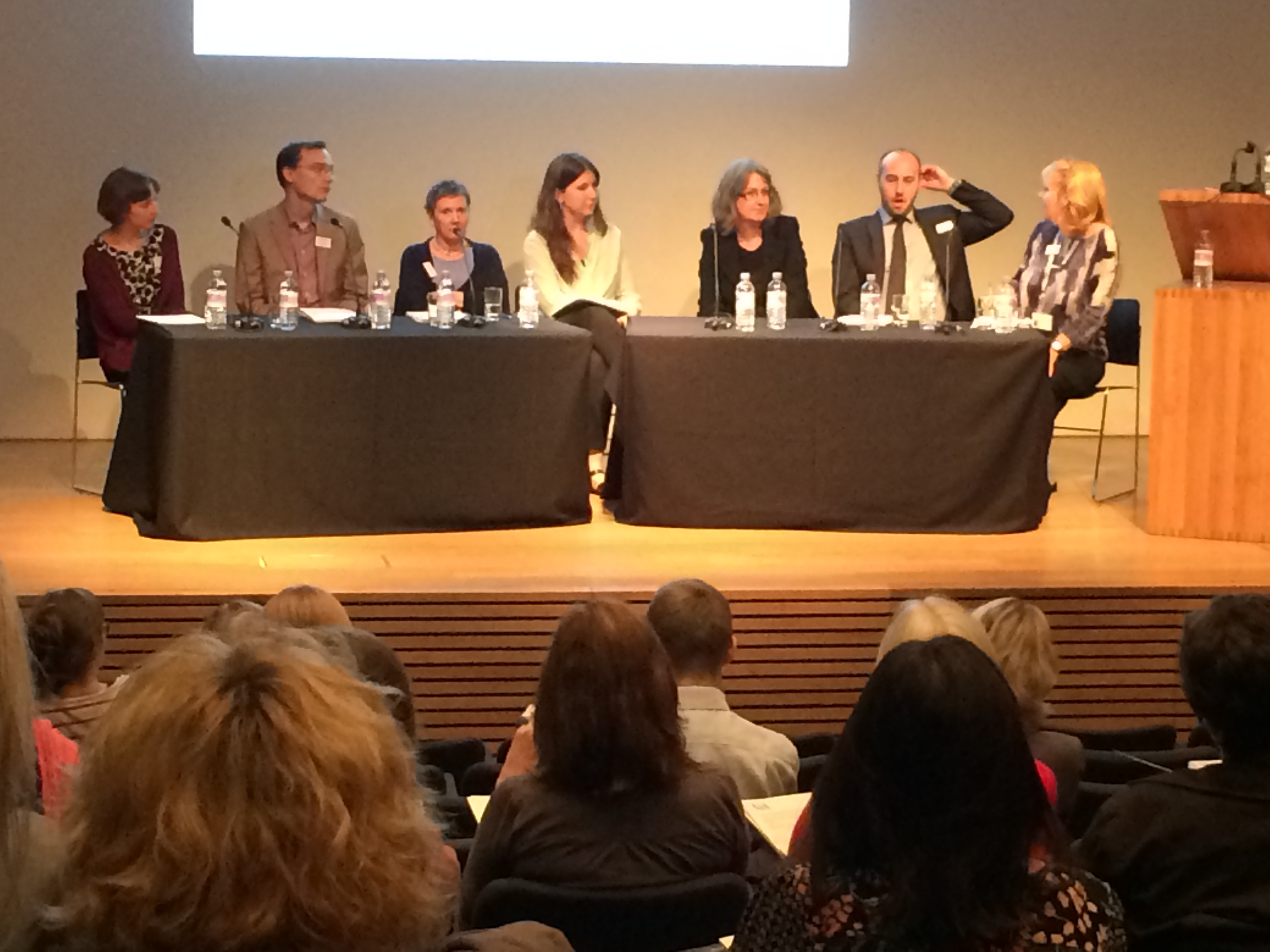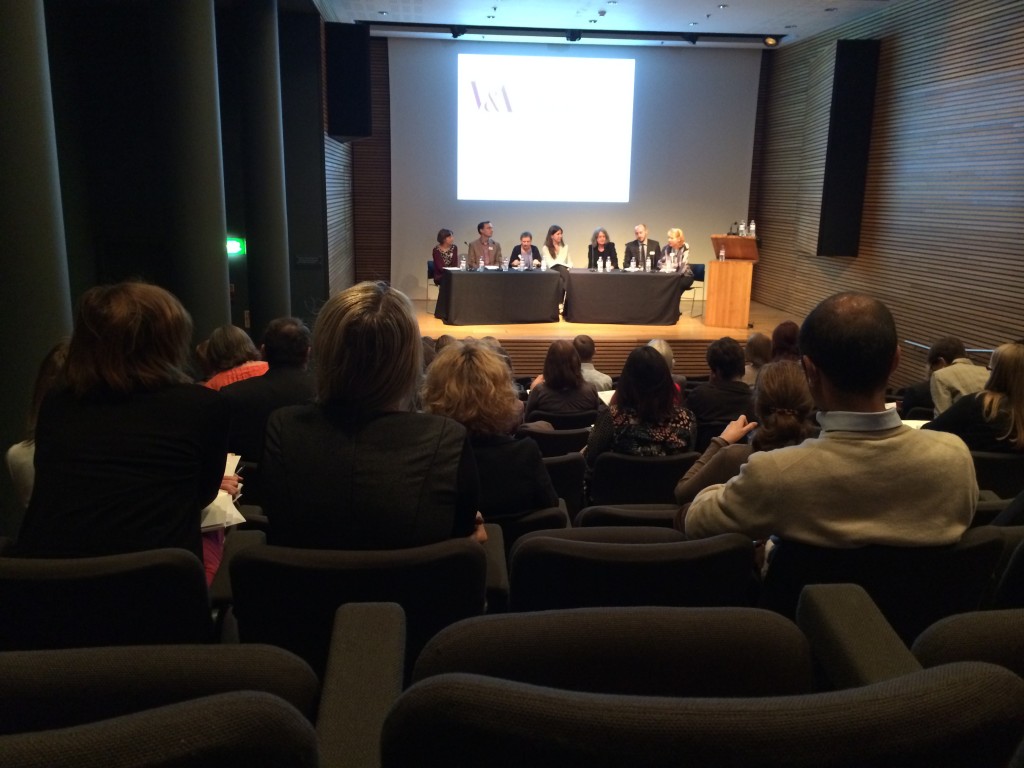The Mysteries of Funding Revealed, by Alex Patterson

How to Succeed in Getting Grant Funding: Opportunities for Researchers seminar, 10 September 2014
‘How to succeed in Getting Grant Funding: Opportunities for Researchers’, a seminar organised by the V&A and the Understanding British Portraits network, left me feeling inspired, informed and motivated. The seminar kicked off with a series of talks from various funding bodies such as The British Academy, The Association of Art Historians (AAH), The Paul Mellon Centre for Studies in British Art, The Leverhulme Trust and the Art Fund. Each representative described the type of funding they offered to researchers and museum professionals like myself.
I attended the seminar because, as a relatively junior member of the profession, the prospect of applying for funding seemed quite daunting – certainly not something I have yet had to tackle! I was appointed Assistant Curator of Fine Art for National Museums Liverpool a year ago and, as the range of work I am involved in at the Walker Art Gallery, Lady Lever Art Gallery and Sudley House develops, I’m sure it won’t be long before I am confronted with a grant application form…Although eager to gain experience, and having seen some of the applications my colleagues have worked on, I was unsure of how to engage in such a task and wanted to understand more fully how the whole funding process worked – what sort of projects would be eligible for funding, and exactly what funding options are available? In the midst of starting my new job, and in the flurry of work that ensued, I hadn’t had chance to give it much thought! My colleagues recommended this seminar as a great ‘way in’, and I’m pleased they did because it didn’t disappoint. In the first instance, I was interested to learn what funding bodies are out there and at the same time to establish which particular ones might be relevant to fine art and to the projects we are currently working on – or indeed ones that might stimulate new ideas for the future.
Programmes Manager Rachael Browning from the Art Fund gave a particularly stimulating talk that I felt was highly relevant to my current position as a new professional. Rachael focused on the Jonathan Ruffer Curatorial Grants. I was interested to discover that amongst their aims, these grants offer support to new professionals, in order to develop curatorial expertise and collection based knowledge. They support travel and accommodation (to attend highly useful seminars such as this!) and fund training courses as well. Since organisational funding to support professional development is, in the current climate, very limited, I can imagine that many other newer curators like me will be keen to know of the opportunity for such well-focused support. As a result I have now started to think proactively about how this might be of use to me in improving my skills and knowledge.
At the Walker Art Gallery much of my time over the past year has been focused on a project to digitise our works on paper collection – itself externally funded. Having spent a great deal of time eagerly, and enjoyably, researching and documenting the collection, I have come across many potential future research opportunities linked to aspects of the collection that have had very little work done on them – with holdings of 8,000 works on paper, as you can imagine there are a good few possibilities, linked not only to the artists but also to the collectors and donors. I am keen to develop these ideas and, with my new-found insight into the mysterious world of funding, I am starting to think more ambitiously about the potential outcomes for these ideas. With this in mind, two funding bodies really caught my eye during the seminar.
Firstly the Research Support Grants, from the Paul Mellon Centre for Studies in British Art. They offer up to £2,000 to academics, scholars and post-graduate students researching British art or architectural history and are available in the spring and autumn of each year to fund travel and expenses. And secondly, the Initiatives Fund offered by AAH. They give up to £500 to support various projects that promote and develop art history education and increase participation in the subject. This can include conferences, workshops or online forums and publications. This funding is also available twice a year in May and November and you or your institution must be a member of the AAH in order to apply. As we continue to have discussions about aspects of the collections ‘uncovered’ through our digitisation project, and explore the potential in the future for exhibitions and other projects based around them, I will now be very mindful of the opportunities offered by these funds to support the work that we would need to do in order to realise our ambitions.
Following introductions to the various funding sources available, the seminar focused on the application process itself. Although this session focused mainly on the larger funding applications, the overall messages were applicable to applications of any size – and those messages came across loud and clear: think carefully about the project you want to do; carefully read the questions asked by the funder; understand and ensure you meet the criteria; and above all, make sure you are applying to the right funders in the first place! The latter is a surprisingly common error, but we learnt that a well-placed phone call to the funding body to establish the relevance of your project can flush out any miss-matched proposals at the outset. Not only can they discuss the funding process in a more transparent way but funders can also recommend how to enhance your project to reach its full potential – don’t be afraid to ask for help and advice!
It is highly encouraging, indeed inspiring, to know that there are funding bodies out there geared towards the support of good, strong projects, and that an equally good, strong application can be successful if approached in the right way. Here at National Museums Liverpool we are fortunate to have a very active Development Office, with colleagues who specialise in fund raising. However, as curators, we are often required to compile the ‘core information’ for an application (and sometimes to make recommendations for funders for projects) and it is therefore essential that we have a proper understanding of the process and what a particular funder is looking for. This seminar has definitely set me on the right track in that respect. To develop my knowledge further, I shall be taking the advice of Ailsa Roberts, Research Grants Manager at Tate, who recommended the Research Funding Toolkit as a must-read for anyone applying. Happy reading, and successful fund-raising!



